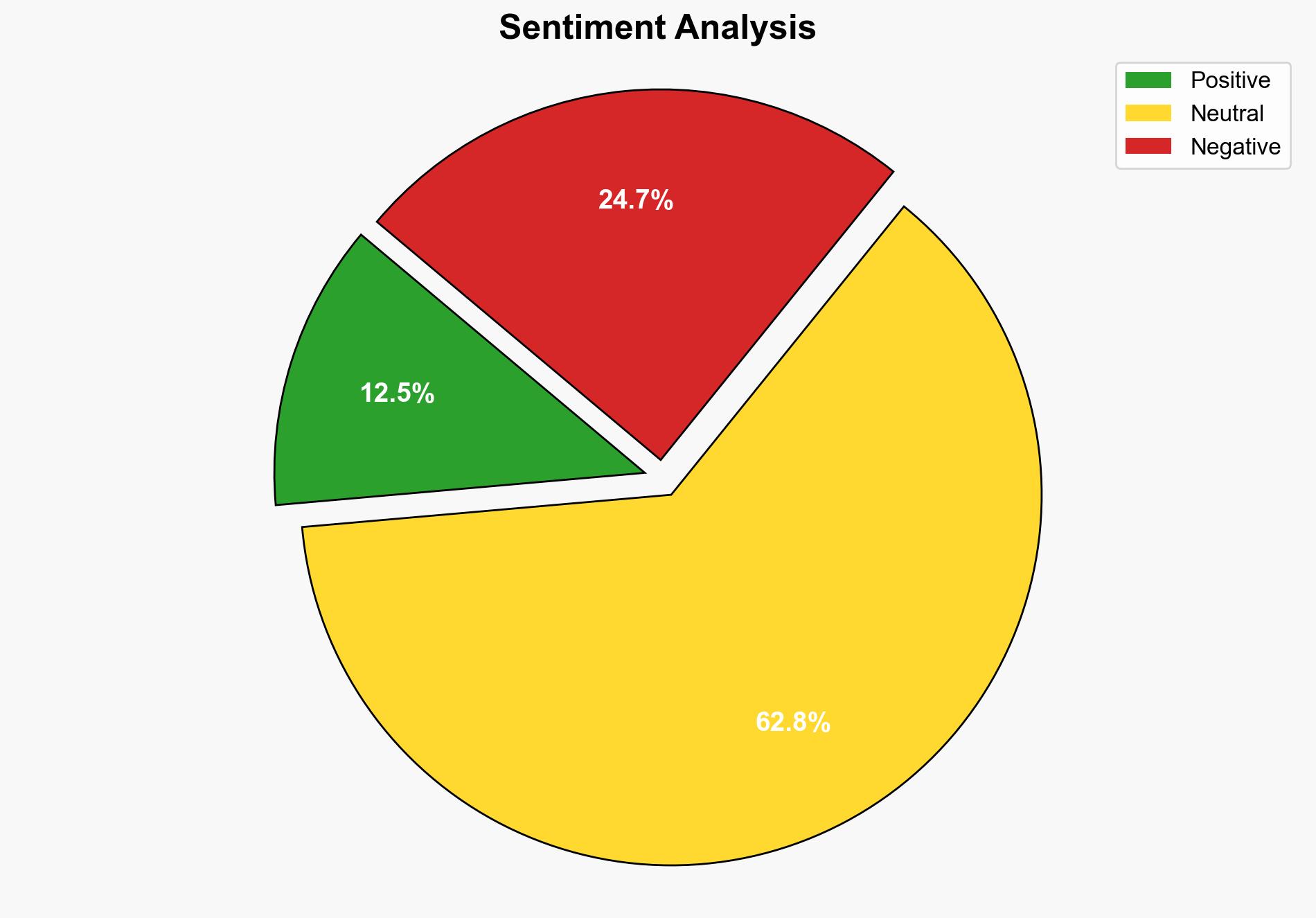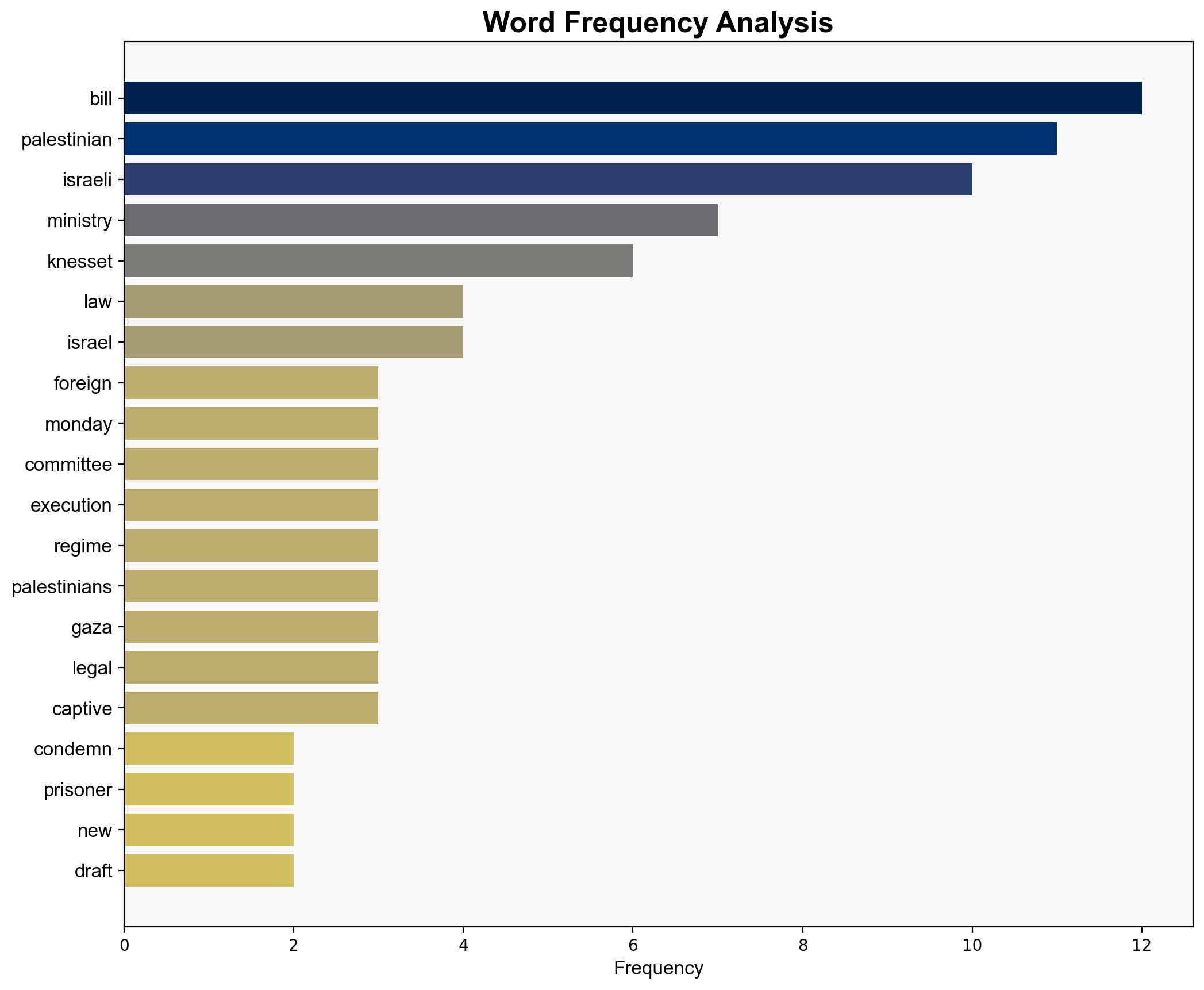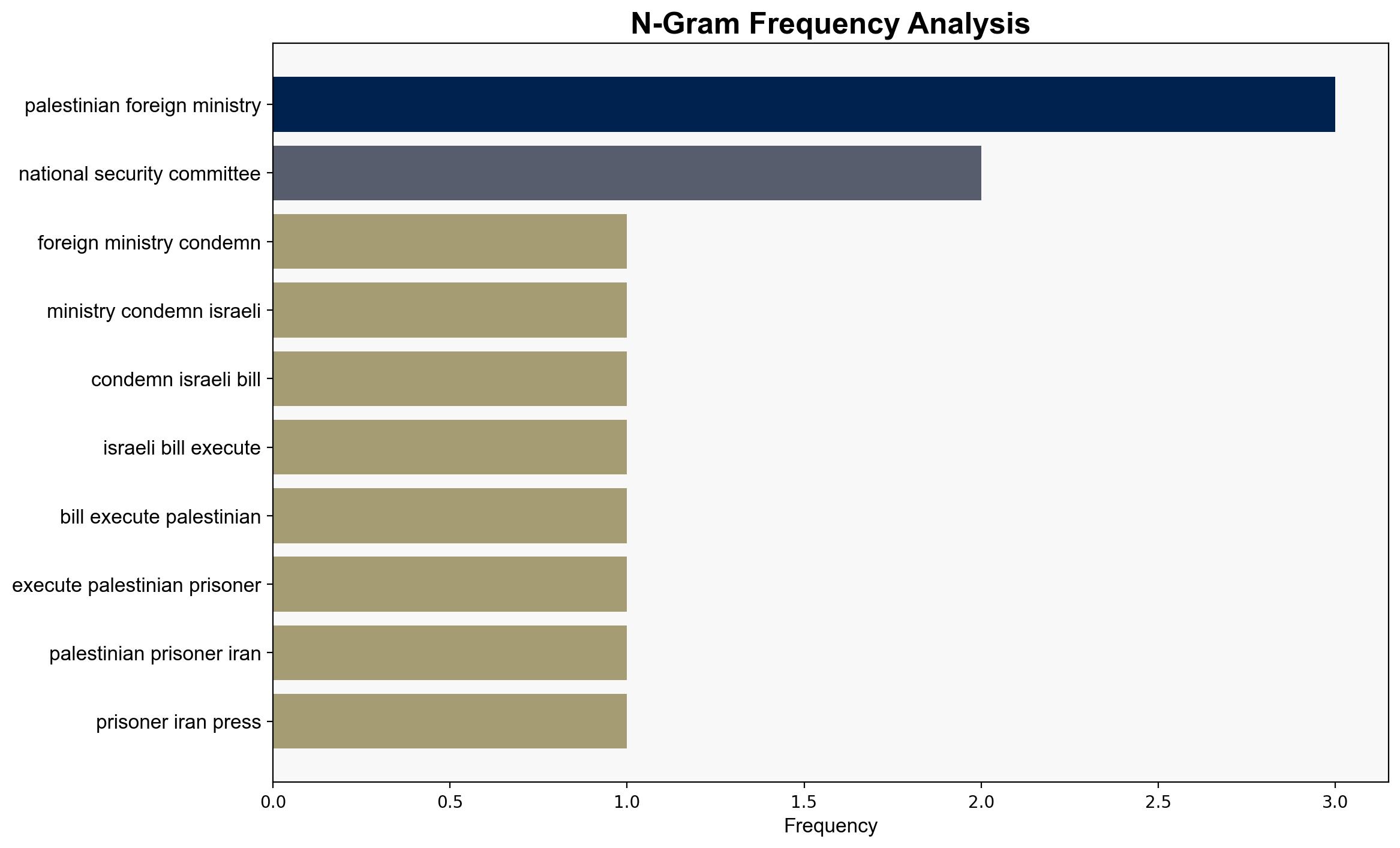Palestinian Foreign Ministry condemns Israeli bill to execute Palestinian prisoners – Globalsecurity.org
Published on: 2025-11-04
Intelligence Report: Palestinian Foreign Ministry condemns Israeli bill to execute Palestinian prisoners – Globalsecurity.org
1. BLUF (Bottom Line Up Front)
The most supported hypothesis is that the Israeli bill to execute Palestinian prisoners is primarily a political maneuver by far-right elements within the Israeli government to consolidate power and appeal to their base. This report evaluates this hypothesis with a moderate confidence level and recommends diplomatic engagement and international pressure to prevent potential escalation. Structured analytic techniques, including Analysis of Competing Hypotheses (ACH) and Cross-Impact Simulation, were utilized to ensure analytic rigor.
2. Competing Hypotheses
1. **Hypothesis A**: The bill is a strategic move by far-right Israeli political factions to consolidate power domestically and appeal to their political base by demonstrating a hardline stance against perceived threats.
2. **Hypothesis B**: The bill is a genuine security measure intended to deter future attacks by imposing severe consequences on those convicted of nationalistic violence.
Using ACH, Hypothesis A is better supported due to the timing of the bill’s introduction, the involvement of far-right political figures, and the historical context of similar legislative efforts. Hypothesis B lacks support due to the absence of evidence showing a direct correlation between such measures and a reduction in violence.
3. Key Assumptions and Red Flags
– **Assumptions**: It is assumed that the bill will pass through the legislative process without significant amendments. Another assumption is that international reaction will be predominantly negative, potentially influencing Israeli decision-making.
– **Red Flags**: The lack of detailed data on the bill’s potential impact on Israeli-Palestinian relations and the absence of clear evidence linking the bill to improved security outcomes are significant blind spots.
– **Cognitive Bias**: Confirmation bias may influence interpretations, especially if analysts focus on historical patterns of Israeli legislative behavior without considering new geopolitical dynamics.
4. Implications and Strategic Risks
– **Geopolitical Risks**: The bill could exacerbate tensions between Israel and Palestine, potentially leading to increased violence and destabilization in the region.
– **Economic Risks**: Heightened tensions may deter foreign investment and tourism in Israel and Palestine, impacting economic stability.
– **Psychological Risks**: The bill could further polarize Israeli and Palestinian societies, entrenching extremist views and reducing prospects for peace.
5. Recommendations and Outlook
- Engage in diplomatic efforts to mediate tensions and encourage dialogue between Israeli and Palestinian leaders.
- Utilize international platforms to apply pressure on Israeli lawmakers to reconsider the bill’s implications.
- Scenario Projections:
- **Best Case**: The bill is amended or withdrawn, leading to renewed peace talks.
- **Worst Case**: The bill passes, resulting in widespread unrest and international condemnation.
- **Most Likely**: The bill faces significant opposition but remains a point of contention in Israeli politics.
6. Key Individuals and Entities
– Itamar Ben Gvir: Far-right Israeli political figure advocating for the bill.
– Benjamin Netanyahu: Israeli Prime Minister involved in discussions regarding the bill.
– Palestinian Foreign Ministry: Vocal opponent of the bill, calling for international intervention.
7. Thematic Tags
national security threats, geopolitical tensions, legislative analysis, regional focus





